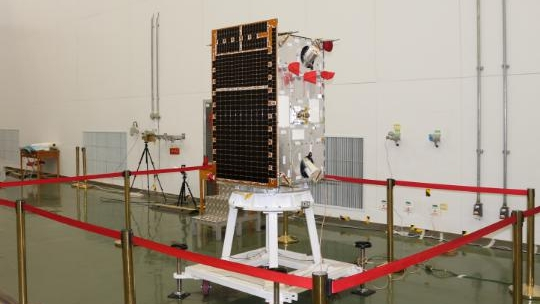
Taiji-1 satellite for experiments of space-based gravitational wave detection. /CCTV Photo
Taiji-1 satellite for experiments of space-based gravitational wave detection. /CCTV Photo
China's first satellite to conduct experiments on key technologies related to space-based gravitational wave detection, Taiji-1, has successfully completed its in-orbit tests, the Chinese Academy of Sciences (CAS) announced Wednesday.
Sent into orbit on August 31, 2019, the satellite is first of its kind in China, and has completed its in-orbit experiments, making a breakthrough in the country's gravitational wave detection, said Wu Yueliang, chief scientist of the project.
After four months of tests and experiments, it was proven that the satellite system has a sound performance in orbit and completed all the experiments required for research, Wu added.
With the success of Taiji-1's in-orbit tests, the first goal of CAS's three-step strategy to implement the program has been successfully achieved.
Taiji-1 will conduct more expansion experiments in the next stage, said Wu.
The CAS has been demonstrating the feasibility of space gravitational wave detection in China since 2008. It put forward the "Taiji-plan" for gravitational wave detection, and identified a three-step development strategy from single satellite to double and triple satellites.
(With input from Xinhua News Agency)